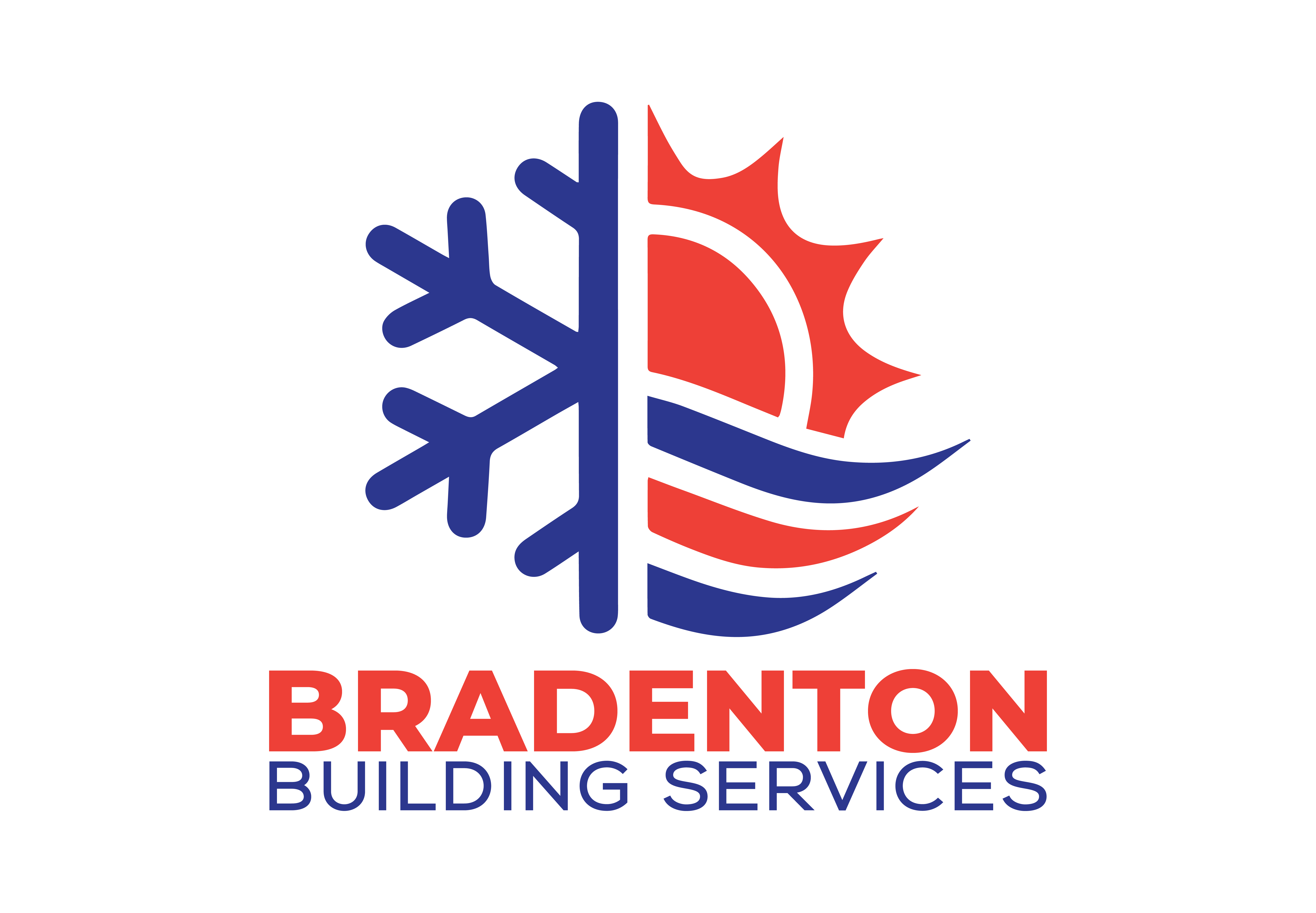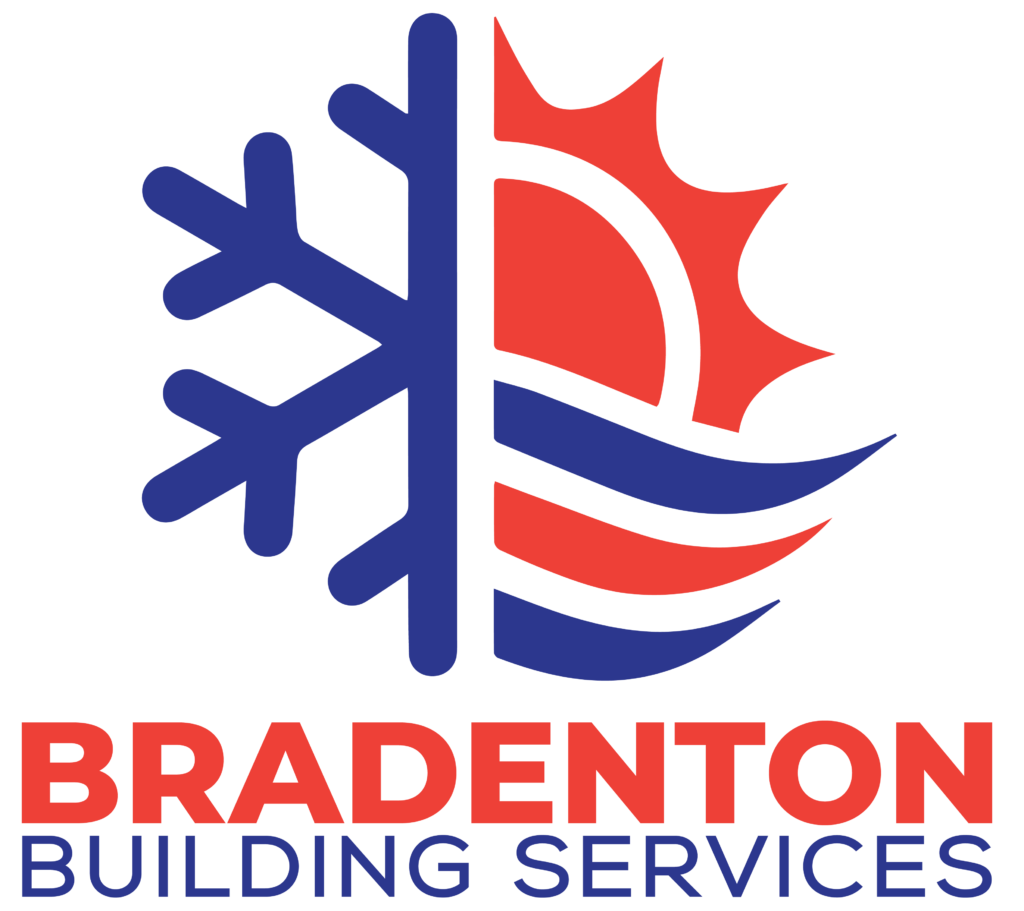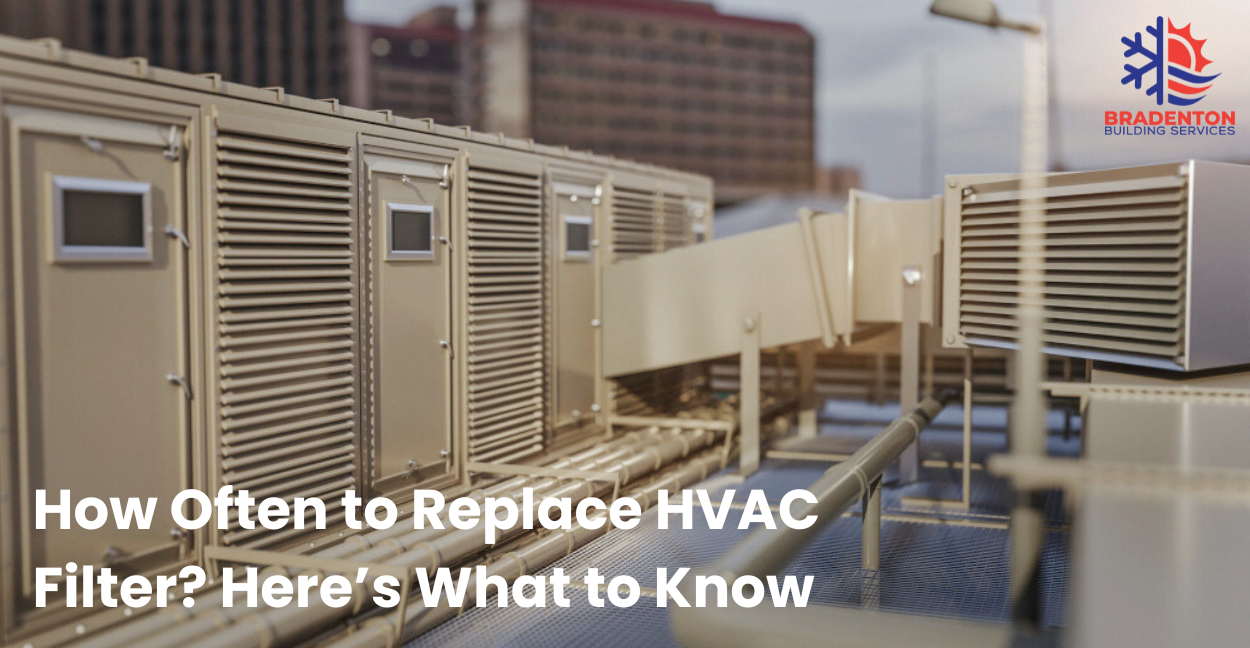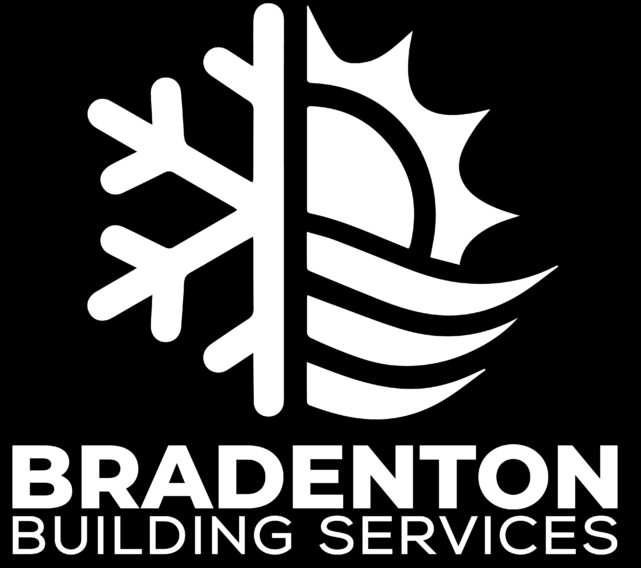Regular HVAC filter replacement is crucial for maintaining your system’s efficiency and ensuring clean indoor air. But How Often to Replace HVAC Filter? Here’s What to Know depends on various factors like usage, air quality, and the type of filter you’re using. In this article, we’ll guide you on when to replace your filter and why it matters for your system’s performance and your comfort.
Why is Replacing Your HVAC Filter Crucial?
Replacing your HVAC filter regularly is essential for maintaining the efficiency and longevity of your heating, ventilation, and air conditioning (HVAC) system. It plays a significant role in several key areas, from system performance to air quality and even health. Below, we’ll break down the main reasons why you should prioritize replacing your HVAC filter.
1.) Impact on System Efficiency and Longevity
One of the primary functions of an HVAC filter is to trap dirt, dust, pet dander, and other particles, preventing them from circulating through the air ducts and clogging up internal components of your HVAC system. Over time, these particles build up on the filter, and if the filter is not replaced, it can become clogged. A clogged filter restricts airflow, causing your HVAC system to work harder to circulate air throughout the building.
When your HVAC system has to work harder, it uses more energy, which can lead to higher utility bills. Moreover, this added strain on the system can shorten its lifespan. Regular filter replacement helps your HVAC system run more smoothly, improving its efficiency and helping it last longer.
2.) Impact on Indoor Air Quality
The cleanliness of your HVAC filter directly impacts the quality of the air in your home or business. A dirty or clogged filter cannot trap dust, allergens, and other particles effectively. As a result, these contaminants are recirculated into the air, which can negatively affect the indoor air quality.
If your HVAC filter is old or dirty, you might notice an increase in dust buildup around vents, or you might experience unpleasant smells. In spaces like offices, homes with pets, or areas with high humidity, poor air quality can cause discomfort and even exacerbate respiratory issues such as asthma and allergies. By replacing the filter regularly, you ensure that harmful particles are being filtered out, leading to cleaner and healthier air.
3.) Potential Health Benefits
For people with asthma, allergies, or respiratory issues, regularly changing the HVAC filter is even more critical. When a filter is clogged, it fails to trap allergens like pollen, pet dander, and mold spores. These airborne pollutants can trigger allergic reactions, asthma attacks, and other health problems.
By replacing the filter, you ensure that the HVAC system continues to filter out these harmful particles, helping to maintain better air quality and improve the overall health and comfort of everyone in the space. In fact, using high-efficiency filters like HEPA filters can further reduce the presence of allergens in the air.
4.) Prevention of System Breakdown and Costly Repairs
A dirty filter is one of the most common causes of HVAC system malfunctions. When airflow is restricted by a clogged filter, the system can overheat, putting excessive stress on components like the blower motor. This can lead to breakdowns and costly repairs. By replacing the filter regularly, you reduce the risk of damage to these components, helping to prevent expensive repairs or even the need for a full system replacement.
How Often To Replace HVAC Filter?
The frequency of replacing your HVAC filter depends on various factors such as the type of filter you’re using, your environment, and the specific needs of your HVAC system. Regularly replacing the filter is key to ensuring the system operates efficiently and to maintaining good indoor air quality. Here’s a breakdown of the different considerations and general guidelines for replacing your HVAC filter.
1.) Standard Recommendations: 30 to 90 Days
For most residential or commercial HVAC systems, the general recommendation is to replace the filter every 1 to 3 months. This range can vary based on several factors, and it’s essential to adjust the schedule depending on your specific circumstances. For more personalized advice on filter replacement and maintenance, you can explore our article on Commercial HVAC Services in Manatee, where we discussed tailored solutions for optimal system performance.
- Every 30 days: If you use a standard fiberglass filter, you may need to replace it monthly. These filters capture larger particles but don’t filter as effectively as more advanced filters. Because they’re less efficient, they tend to clog up faster, requiring more frequent replacements.
- Every 60 to 90 days: For better-performing filters, such as pleated filters or high-efficiency particulate air (HEPA) filters, you can often wait 2-3 months before replacing them. These filters can trap finer particles, so they last longer before they become clogged.
2.) Environmental Factors
Certain environmental factors can impact how often you should replace your HVAC filter. These factors include:
- Allergy Season: During periods of high pollen, such as spring or fall, you may want to replace your filter more often. Pollen and other allergens can quickly accumulate, making the filter less effective. Replacing it monthly during these times can help improve air quality.
- Pets: Homes or businesses with pets may need more frequent filter replacements. Pet dander, hair, and other particles can clog up the filter faster. If you have multiple pets or shedding animals, aim to replace your filter every 30-60 days.
- Location and Climate: If you live in an area with high levels of dust, pollution, or humidity, your filter may become clogged more quickly. Similarly, if your HVAC system is used frequently in a space with high foot traffic or heavy activity, it may need to be replaced more often. For homes or businesses in such environments, consider checking the filter monthly and replacing it as needed.
3.) The Type of Filter Matters
The type of HVAC filter you use also plays a role in determining how often it should be replaced. There are different types of filters, and each has a different lifespan:
- Fiberglass Filters: These are the most basic and affordable filters. They trap large particles but don’t do as well with smaller particles like allergens and bacteria. Because they clog faster, they should be replaced every 30 days.
- Pleated Filters: Pleated filters are made from a folded material, offering more surface area for filtering. They are more efficient than fiberglass filters and can last anywhere from 60 to 90 days, depending on the level of pollution or contaminants in your home or business.
- High-Efficiency Filters (HEPA): These filters are designed to trap even smaller particles, such as bacteria, viruses, and allergens. While they provide superior filtration, they also last longer. Depending on the usage, they can last from 6 months to 1 year, although it’s still important to inspect and replace them if they become clogged.
4.) How to Check Your Filter
If you’re unsure whether your HVAC filter needs replacing, a simple visual inspection can help:
- Look at the filter: If it appears dirty, clogged, or discolored, it’s time to replace it.
- Check airflow: If airflow feels weak when the system is running, it may be a sign that the filter is obstructed and needs to be replaced.
- Check the filter’s rating: Higher-efficiency filters trap more particles but may clog up more quickly, requiring more frequent replacements. Check the manufacturer’s instructions to understand the optimal replacement time.
5.) Special Cases for Commercial Spaces
In commercial buildings, HVAC systems often run continuously, which can result in faster filter buildup. For spaces with higher foot traffic, such as office buildings, retail stores, or restaurants, you may need to replace the filter more often than in residential settings. Commercial properties with sensitive equipment, clean rooms, or environments that require stringent air quality standards may need to change filters monthly or even more frequently.
Bradenton Building Services, is ready to help. Our team in Manatee and Sarasota specializes in HVAC filter replacements and maintenance to keep your system running efficiently. Contact us today for cleaner air and improved system performance!
Understanding Different Types of HVAC Filters
HVAC filters come in various types, each offering different levels of filtration and efficiency. Choosing the right filter for your system and needs can impact both the performance of your HVAC system and the quality of indoor air. Below is an overview of the most common types of HVAC filters.
1.) Fiberglass Filters
- Description: Fiberglass filters are the most basic and affordable option. They are made of a simple layer of fiberglass mesh and typically feature a flat design.
- Efficiency: These filters capture larger particles such as dust and debris but don’t trap smaller particles like pollen, pet dander, or smoke.
- Replacement Frequency: They need to be replaced every 30 days or so, as they clog up faster.
- Best For: Homes or businesses without allergy concerns, as they offer minimal filtration.
2.) Pleated Filters
- Description: Pleated filters are made of folded fabric, which increases the surface area for trapping particles. This design allows for better airflow and more efficient filtration.
- Efficiency: Pleated filters capture finer particles than fiberglass filters, including dust, pollen, mold spores, and pet dander.
- Replacement Frequency: These filters can last between 60 to 90 days, depending on usage and environmental factors.
- Best For: Most households, especially those with allergy sufferers or pets.
3.) HEPA Filters (High-Efficiency Particulate Air)
- Description: HEPA filters are the most advanced and effective type of filter. They are made of a dense mat of fine fibers designed to trap very small particles.
- Efficiency: HEPA filters can capture up to 99.97% of particles that are 0.3 microns in diameter or larger. This includes tiny particles like bacteria, viruses, and allergens.
- Replacement Frequency: HEPA filters last longer than standard filters, ranging from 6 months to a year, depending on the environment.
- Best For: People with severe allergies, asthma, or those living in areas with poor air quality.
4.) Carbon Filters
- Description: Carbon filters are designed to absorb odors and gases in addition to trapping particles. They often contain activated carbon or charcoal.
- Efficiency: These filters excel at removing odors, smoke, volatile organic compounds (VOCs), and other harmful gases.
- Replacement Frequency: Carbon filters need to be replaced every 3 to 6 months, depending on usage and air quality.
- Best For: Spaces with heavy odors, such as kitchens, smoking areas, or industrial environments.
5.) Electrostatic Filters
- Description: Electrostatic filters are made of synthetic materials that are charged to attract particles, much like a magnet. Some are washable, while others need to be replaced.
- Efficiency: These filters can trap both large and small particles, including dust, pollen, and pet dander.
- Replacement Frequency: Washable electrostatic filters can last up to 5 years with regular cleaning, while disposable ones should be replaced every 60 to 90 days.
- Best For: People seeking a more sustainable, reusable option for general filtration.
What Happens If You Don’t Replace Your HVAC Filter?
1.) Reduced Airflow:
A clogged filter restricts airflow, causing the HVAC system to work harder to circulate air. This leads to decreased efficiency and can cause your system to overheat, which may trigger system malfunctions or even failure.
2.) Increased Energy Bills:
With reduced airflow, your HVAC system must work overtime to heat or cool your home, leading to higher energy consumption and increased utility bills.
3.) Poor Air Quality:
A dirty filter fails to trap dust, allergens, and other particles, causing them to circulate in your indoor air. This can lead to poor air quality, aggravating respiratory issues and allergies.
4.) Faster Wear and Tear:
When the filter is clogged, it forces the system to run longer and harder, accelerating wear on components like the blower motor. This can lead to costly repairs or even the need for a complete system replacement.
5.) Frozen Coils:
If the airflow is obstructed too much, the evaporator coils can freeze, which not only prevents the system from cooling properly but can also cause water damage when the ice melts.
Frequently Asked Questions.
1.) How often should I replace my HVAC filter?
You should replace your HVAC filter every 1 to 3 months, depending on the filter type and environmental factors. Basic fiberglass filters typically need replacing every 30 days, while pleated or HEPA filters can last 60 to 90 days. If you have pets or live in a dusty area, you may need to replace your filter more frequently.
2.) Can a dirty HVAC filter affect my system’s performance?
Yes, a dirty filter can restrict airflow, causing your HVAC system to work harder, reducing its efficiency. This can lead to higher energy bills, increased wear and tear on your system, and potentially cause overheating or system failure. Following essential HVAC maintenance tips, such as regular filter replacement, ensures your system runs smoothly and efficiently.
3.) What happens if I don’t replace my HVAC filter?
Not replacing your HVAC filter can lead to poor air quality, increased strain on your HVAC system, and higher energy consumption. A clogged filter can cause dirt and dust buildup inside the system, leading to potential breakdowns and costly repairs.
4.) What type of HVAC filter is best for allergies?
For those with allergies, HEPA filters are the best option. They trap tiny particles, including pollen, pet dander, and dust mites, effectively improving indoor air quality. If a HEPA filter isn’t compatible with your system, pleated filters are also a good choice for capturing allergens.
5.) How can I tell if my HVAC filter needs replacing?
Check your filter regularly—if it looks dirty or clogged, it’s time to replace it. A simple airflow test, where you feel for air coming out of the vents, can also indicate if the filter is obstructed. If airflow is weak, it’s likely the filter needs replacement.
About Bradenton Building Services
Bradenton Building is your trusted partner for all your commercial HVAC needs in Manatee and Sarasota. With over 20 years of experience, we specialize in providing top-notch Commercial HVAC Services in Manatee & Sarasota, including Air Duct Cleaning, Air Quality & Purification Solutions, and Commercial Air Filters. Our expert team is dedicated to helping you create a healthier, more efficient work environment by offering services tailored to meet the unique needs of your business. Whether you’re looking for routine maintenance, air purification upgrades, or specialized HVAC solutions, Bradenton Building delivers exceptional results with a commitment to quality and customer satisfaction. Contact us today to experience the difference of working with a professional and reliable HVAC partner!




